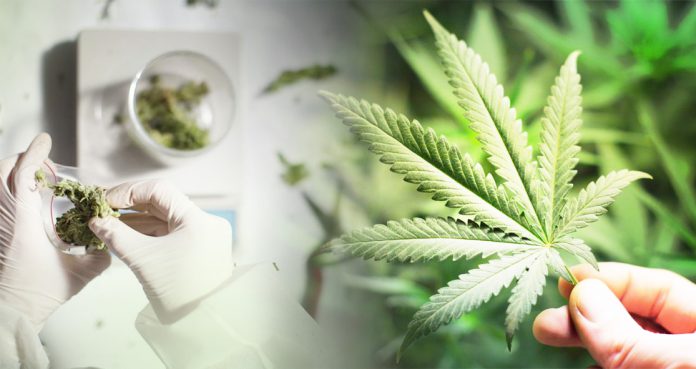Italian researchers have discovered a new cannabis compound that is 33 times more potent than tetrahydrocannabinol (THC), a psychoactive stimulant that gets you high.
However, it is unclear whether the new cannabis compound, called tetrahydrocannabiphorol (THCP), will deliver 30 times the high of THC.
The researchers, who published their findings in the journal Nature, Scientific Reports, have also discovered another compound called CBDP, which appears to be a close cousin of cannabidiol (CBD) that has anti-inflammatory, antioxidant, and anticonvulsant effects.
They assessed the ability of THCP to adhere to human cannabinoid receptors that are found in the endocannabinoid system, which keeps the body in homeostasis and regulates everything from appetite to sleep to pain to inflammation and more.
When you smoke marijuana, THC increases the activity of the endocannabinoid system, holding the cannabinoid receptors and interfering with their ability to communicate between nerve cells.
THCP adheres strongly to both receptors, approximately 33 times more than THC does and 63 times more than another compound called tetrahydrocannabivarin (THCV).
Lead author Dr. Cinzia Citti said, “This means that these compounds have a higher affinity for the receptors in the human body. In cannabis varieties where THC is present in very low concentrations, then we can think that the presence of another, more active cannabinoid can explain those effects.”
The researchers have been focusing on the potential health benefits of CBD but they think THCP could offer health benefits because it appears to be potent and show stronger binding abilities.
The authors explained that their findings could help in enabling the production of cannabis extracts for targeted physical effects; however, more studies are required to conclude whether THCP is safe and effective for health issues.
Dr. Jane Ishmael from Oregon State University’s College of Pharmacy said, “There are other minor cannabinoids and traces in the plant that can be hard to study, but by isolation, we can continue to assess the effects they might offer.”
“Historically, many of our medicines have been derived by or inspired by natural products,” added Dr. Ishmael. “By having new compounds that bind with very high affinity, that will give scientists a new probe into biological sciences.”





















